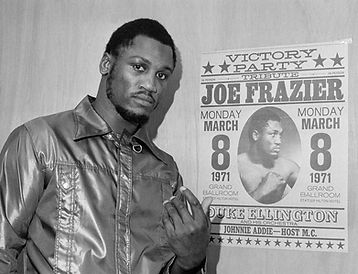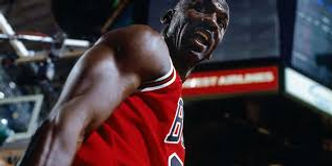Series:
Essay #3:
Synopsis:
Ends & Means
Highest Good
I should live by a highest good, which will be the north star that makes sense of my life
To make sense of my life, I start by asking: what is my end, what am I living for? The answer will be my highest good, and because the end controls the means, it’ll determine how I live my life.
I define highest good as that which is most important to me. It’s the moral center around which everything else in my life circumambulates, the center around which I organize my desires, fears, shoulds and should-nots. Like a north star that makes my life intelligible, or like an Aristotelian form that makes sense of matter.
But enough abstraction… here are some examples of highest goods, a short list for your consideration. First and foremost: to love and be responsible. And also: to develop oneself, give proper respect, be fair, be loyal, live for truth and beauty. If you want a shorter list, try Spiridon’s moral criteria: “Killing wolves is right; eating people is wrong,” which I take to mean, kill the human predators but don’t be one; (from Solzhenistsyn’s In the First Circle). Or even shorter: Christ’s commandment to love God, love neighbor.
I say, “OK, I want it, but where do I find it?” I listen to my heart. I listen, like Martin Buber saying of the person who lives in Thou, “He listens to what is emerging from himself…in order to bring it to reality as it desires.” I let my heart (in its own time, in its own way) form a picture of the best me living my best life, then I articulate the one principle that underlies that life. I put my heart’s desire into words so that I can make sense of it. I also listen to the voices of fear and I gauge their truth.
For me, it happened when I was a young lawyer in the big firms. I was putting in 70 hours a week and collapsing comatose on the couch every night. I knew this wasn’t my best life. One night I caught a little Forrest Gump on TV. There was a scene near the end when Forrest walked to the school bus stop, waited for his son, and they walked home together. I saw it and my heart spoke. I left the big firm, started a solo practice, walked my kids home from school everyday, and it all came into place. Being responsible to family was my highest good, the thing that made sense of my life, and when I understood that, I became me. I began to live my life.
What if I search my heart and find I want something that I shouldn’t want? Saint Augustine said that what I love determines who I am, which is true… but love is gratuitous. I don’t choose what I love, rather, it chooses me: it calls to me and my eyes go to it, and it might call me into suffering. Take martial artists as an example. You know a true martial artist by watching his eyes: you’re talking with him and his eyes go past you to the sparring in the ring. I believe the highest good of a martial artist is artistic excellence, a search for truth and beauty in the crucible. These are worthy goods. But imagine a good where the training is brutal and you make no money. Martial artists watch their lives pass by in pursuance of something they never chose, it chose them, and they wonder what life would’ve been like if they had put all that effort into something else. Maybe this is the fate of an artist: pursue that end and live that life.


But not necessarily. Although it’s true that I love what I love and I can’t really control it, still, I control how I live. I can balance the goods in my life so that I get enough of enough of them to live well. For example, a martial artist (who knows he’ll never make the big time) might allocate the hours in his day between martial arts and a profession or trade, and now he can provide for his family. He balances his loves to be responsible to all of them. Thomas Sowell said, “There are no solutions. There are only tradeoffs.”
What if I love something that doesn’t love me back? Augustine said that if I put too much love in unworthy things, my love will be my undoing. We all know what the love of money does to a man; that’s the easy case. What about the harder case of loving a worthy good too much? Witness self-development. Self-development is a worthy good. We should self-develop in every stage of life. For a young person, self-development is a highest good, too, because a young person’s job is to develop into a valuable and positive member of the community. To make the world better, I start by looking in the mirror and making myself better.
As a teenager, my son was an intense self-developer. He had his exercise and diet down perfect, and he looked great. We’d sit down at the dinner table to enjoy a wonderful meal and talk about the tradeoffs that come with extreme diets. If I commit to a strict keto or vegan diet, I can’t eat the things I like, and further, I need specially prepared food so it’s hard to eat with other people. When does the good of self-development impinge on other, perhaps higher goods?
We’ve all seen the person who takes self-development too far. These are the life optimizers for whom even oneself is an It, training the self like a cyborg, developing habits as algorithms. If I’m a little soft, I go keto + intermittent fasting. If I have angry loops, I meditate an extra hour. I wear designer products that are so exclusive they look generic. I hedge the future by creating multiple options for every life-event, but I have no obligation to any of them and I can jump between them at will. I am calm. I am in control. I’m so lonely.
Hence my one criterion for a highest good: it must pull me outward into Thou relation with other people. For example, if I seek truth or beauty, I must share it with others. If I’m a self-developer, I must develop so that I can carry my load in the community. The grandfather of Justice Clarence Thomas said, “we had an obligation to do well, so that we could do good, particularly for others.” Like Christ: I lose my life and I find my life in service to others.
Now that I’ve drawn my line in the sand, though, I’ve set myself up for criticism from folks who disagree with my one criterion. A highest good is a jealous god. For every individual, there’s one highest good to rule them all, and in the brightness judge everyone else’s. Everyone thinks his own is the best. Me in my mid-20s would’ve been dissatisfied with me today (“that old man is soft”). I was a hard self-developer then, like my middle daughter is today (also in her mid-20s). Recently she said, “Dearest father, I’m proud that you continue to develop as a person into your old age.” I felt a rush of joy, then I thought, she’s judging me; I’m judged worthy by the standard of her highest good.
Highest goods will always conflict. Does this mean that no good is better than another? No. There’s no need to get scared and run off the cliff of relativity, screaming all the way down that morality is subjective illusion. Goods are not exclusive, which means you can have yours and I can have mine, and we can talk about which one’s better in what context. My highest good is responsibility to family and I judge my daughter accordingly, and her highest good is self-development by which she judges me, and there’s no problem here. We can talk about this.



Later I was talking with that same middle daughter about the psychologist, Erik Erikson. Erik Erikson was born Erik Homberger but he changed his name. I first read about Erik Erikson in my late teens, when I was creating my identity, and his new name made sense: Erik son of Erik. I’m the author of my life story. My daughter understood because she’s doing that, too.
In Sources of the Self, Dr. Charles Taylor says that we make sense of our lives as a story, a quest, where the plot is our relationship with a highest good. My story has an arc, and I make sense of it in light of my highest good. Consider Michael Jordan and his Hall of Fame speech, for example. Michael Jordan told a story about a life organized around one good. He was a winner, and his highest good was to win and keep winning. Overcome every person and every situation. F--- you, I will beat you. Jordan’s speech showed the attitude and anger that he felt was required to win. He named the people he fought and beat along the way, including the long-since forgotten player who made high school varsity over him.
“Leroy Smith was a guy when I got cut he made the team – on the Varsity team – and he’s here tonight. He’s still the same 6’7″ guy – he’s not any bigger – probably his game is about the same. But he started the whole process with me, because when he made the team and I didn’t, I wanted to prove not just to Leroy Smith, not just to myself, but to the coach that picked Leroy over me, I wanted to make sure you understood – you made a mistake dude.”

Jordan spoke a truth of which he was certain. What if I look back on my life and the story feels uncertain and ambivalent? If my story drifts along without a plot, then I need a backbone. I must reflect on my highest good, articulate it, then implement it… and watch the magic that happens. When my future has purpose and meaning, my past will magically become meaningful too. I’ll say, “If I’d done it another way, I wouldn’t be me today and I wouldn’t be going where I’m going today.” I’ll say, “Yes, I smoked too much joint and wasted too many years, but all that means something; I know what despair is, and now I’m building something meaningful out of it.”
Dr. Charles Taylor said, “our condition can never be exhausted for us by what we are, because we are always also changing and becoming.” So when I ask, who am I? I answer by following the arc of my story from past to present, and I imagine my story into the future. My future is a part of the story, and the arc of the story tracks my highest goods from the past into the present into the future.
Dr. Jordan Peterson takes it in a powerful direction. In his Self-Authoring Program, Dr. Peterson tells me to imagine myself in ten years: who will I be if I stay on my current track, and who do I want to become? He tells me to be responsible to my future self, the me who will live ten years from now. I must live today so that me in ten years can be proud of me today.

It’s true for us middle-aged people too. Our stories aren’t over! Willa Cather wrote a novel called The Professor’s House, about a professor in his mid-50’s. He has tenure, and his multi-volume work on Spanish adventurers in America won prizes. His marriage is secure and his two daughters are married and on their own. The Professor’s life-story has been the successful navigation of a web of responsibilities, of family and career. Now that’s past: he’s already done it. He has a psychic event and breaks from his old life, and although still married and living at home, he leaves the web of responsibilities. He sits for hours and watches the waters of Lake Michigan. What’s next? Willa Cather doesn’t tell us because she doesn’t know where he’s going. At my age, I think my next highest good, if I’m worthy, will come by the grace of God and I can’t force it. And if that doesn’t work, I can just wait for grandkids.
Essays in this Series, Ends & Means:

